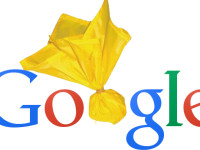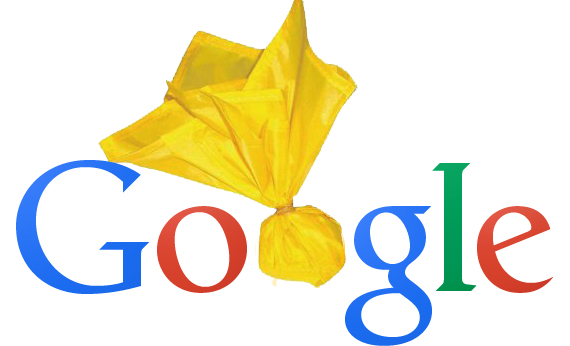The Complete List Of Google Penalties
What Are Google Penalties?
Google penalties are actions taken against your website by Google for violating the Google Webmaster Guidelines. These penalties can lower your position in the search engine results pages (SERPs) or remove your website from Google’s index completely, preventing you from receiving organic traffic from the search engine that de-indexed your website.
The Complete List Of 18 Google Penalties
Manual Penalties
There are a total of 11 manual penalties that your website could receive from Google.
1. Unnatural links to your site—impacts links
This means that Google has detected unnatural links that have been artificially created by you or another person on your website. Unlike every other manual penalty, this penalty does not target your website specifically, but it penalises the unnatural links that were pointing to your website, subsequently devaluing them in the process.
2. Unnatural links to your site
This is the same penalty as the previous penalty, except Google suspects you had control over the links and your website has been directly affected by the penalty.
3. Unnatural links from your site
This is the penalty that a website on the other end of the “Unnatural links to your site—impacts links” and “Unnatural links to your site” (the website that placed the link) would receive.
4. Hacked site
If Google detects that your website has been compromised, you’ll receive this penalty.
5. Thin content with little or no added value
This penalty applies to affiliate pages with little to no unique content, scraped content doorway pages, or guest blog posts.
6. Pure Spam
Arguably the most difficult penalty to receive unintentionally, the pure spam penalty is only applied to the most prestigious of spam websites. These websites are often filled with gibberish comparable to “Lorem Ipsum” filler text, cloaked pages, or scraped content.
7. User-generated spam
This is an alternative penalty to the “Pure Spam” penalty that is applied to websites, such as forum, where users are spamming.
8. Cloaking and/or sneaky redirects
This is a tactic I discussed in my other article, “What Is URL Cloaking And How Does It Work?”. If Google detects that you are displaying a different page or URL to bots and visitors, you can expect this penalty to be applied to your website.
9. Hidden text and/or keyword stuffing
I had previously written about this penalty in my article, “Poor Website Ranking? Here Are 15 Reasons Why”. This penalty is applied to website that repeatedly use the same keyword an unnatural number of times on one page (e.g., a keyword density of 20%). This penalty is also applied to websites that try to hide text or keywords by blending them into the background (an old black hat tactic that no longer works as well as it once did)
10. Spammy freehosts
If Google detects spam on multiple websites hosted by the same host, they often sweep everyone’ website under the rug and penalise them all.
11. Spammy structured markup
If Google detects that your website is marking up content that is invisible to visitors, they’ll apply this penalty to your website.
Algorithmic penalties
According to Google’s algorithm update history, there are currently (at the time of this article’s creation) 7 major algorithm penalties.
1. Panda
The Panda algorithm update with affect your entire website if it detects that you have low quality content on your website. In other words, if the website has duplicate content, poor spelling, poor grammar, hastily written, or is just untrustworthy; then your website could be targeted by the Panda update.
2. Penguin
This algorithm penalty targets websites that engage in aggressive link building tactics. For information on what may be considered aggressive link building, you can read the following articles:
- White Hat Link Building: How To Avoid Link Schemes
- Are Link Building Services Black Hat or White
- What You Need To Know About SAPE Links
3. Pirate
Argh, matey! The pirate update targets websites with copyrighted content. If any website receives too many copyright infringement reports via Google’s DMCA system, the Pirate update will prevent them from ranking well in the future.
4. Payday Loan
Google does not like PayDay loans, Casinos, or Viagra as this as this update targets websites that appear to target those keywords via anchor text or keyword targeting.
5. Pigeon
While not an update that directly penalises websites, the Pigeon update can potentially lower a website’s rankings if the SERPs that it targets contain local or locally searched keywords (the Pigeon update improves local search results).
6. Hummingbird
The Hummingbird update, like the Pigeon update, is not an update that directly penalises websites. This update instead works to ensure that the results for a search query are more accurate than before (e.g., a puppy training website targeting the keyword “rocket ships” is now less likely to appear for that keyword).
7. Top Heavy (Ads Above The Fold)
This update is self-explanatory. If Google detects that your website is using too many ads above the fold (the area of a website you see without scrolling down), this algorithm update will target your website.
Related Articles:
- White Hat Link Building: How To Avoid Link Schemes
- Are Link Building Services Black Hat or White
- What You Need To Know About SAPE Links
- Poor Website Ranking? Here Are 15 Reasons Why
- What Is URL Cloaking And How Does It Work?
- Are The “Rank 1 In Google For Any Keyword” Services A Scam? - April 1, 2025
- OfficeOutlaw.com: Our New Internet Marketing Forum - March 26, 2025
- What You Need To Know Before Using Microsoft Teams - March 24, 2025


